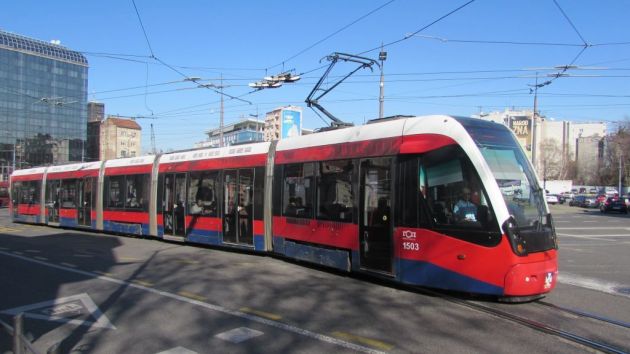(Nomination for 2013 AUREA Award): Kirka Suri - Micro biomass burning plant
 Tuesday, 05.03.2013.
Tuesday, 05.03.2013.
 15:47
15:47

In late 2012 Kirka Suri, boiler and power equipment manufacturer, unveiled a micro cogeneration plant powered by biomass, Micro CHP 65 Kirka, which simultaneously generates both electricity and useful heat for small manufacturers that get biomass as a by-product of their production. This CHP plant is the first of the kind in Europe. So far, all known technologies for generating electric power from biomass have been based on the principles of steam turbines or ORC, that is, turbines powered by thermal oil, with the production of small quantities of power being impossible. Kirka Suri’s new power generation unit, with the capacity of 65kW of electricity and 200kW of heat, utilizes flue gas-air and flue gas-water heat exchangers as well as turbines used in the automotive industry and powered by heated air, which has never been done before.
The efficiency of this CHP plant is approximately 85%. It can be in operation for 8,000 hours annually, that is, over the whole year, and produce 520MWh of electricity and 1,600MWh of heat during that time.
The use of such plant by small manufacturers eliminates their need to use boilers powered by gas, crude oil, oil and coal, which are all polluters and represent a highly expensive item in the annual budget, and they instead focus on the production of green energy, which is encouraged by EU members as well as EU candidate countries (feed-in tariffs). This is also a solution to the problem of waste disposal.
Kirka Suri has already commissioned this CHP plant in its factory in Belgrade’s neighborhood Krnjaca, and it has also signed a contract to deliver 9 such plants to its Italian partner.
INNOVATION

Thanks to its 20-year experience in the development of power plants powered by biomass and industrial waste, Kirka Suri has designed, built and commissioned a biomass-powered micro cogeneration plant, with the capacity of 65kW of electricity and 200kW of heat, in its factory in Belgrade. This is the first successful plant of the kind in Europe intended for small manufacturers. So far, all known technologies for generating electric power from biomass have been based on the principles of steam turbines or ORC, that is, turbines powered by thermal oil. A big practical problem with such plants was their inability to produce small quantities of electricity, i.e., their limited capacity. Aside from that, they required a large amount of biomass and had a problem to connect to the power distribution system due to technical limitations of such systems.
With its innovative design approach, Kirka Suri’s new power plant makes it possible for small manufacturers that get biomass as a by-product of their production to use this fuel to generate green energy for their own needs, or to sell such power at subsidized prices (feed-in tariffs).
Kirka Suri’s new plant consists of a biomass storage, conveyor system, system for dispensing fuel into the firebox, flue gas-air heat exchangers, flue gas-water heat exchangers, filtering system, and a system for automatic removal of combustion products – ash.
Biomass combustion in 2 stainless steel heat exchangers at the temperature of 800 degrees Centigrade creates flue gases that are exchanged with air. Compressed heated air drives turbines to which a generator is connected, and the remaining flue gas energy is exchanged with water to produce hot water.
This CHP plant consumes 600 tonnes of biomass per year. It can be in operation for 8,000 hours annually, that is, over the whole year, and produce 520MWh of electricity and 1,600MWh of heat during that time.
The plant can use different types of biomass, depending on their availability, including those made from the following: wood residues (sawdust, chaff), fruit stones, pellets, grape vine clippings, tree branches, dry chicken droppings, etc.
SOCIAL UTILITY

A big practical problem with previous biomass power plants was their inability to produce small quantities of electricity, i.e., their limited capacity. The biomass-powered micro cogeneration plant Micro CHP 65 Kirka is primarily intended for small furniture manufacturers, farms and greenhouses producing biomass as a byproduct, but in a quantity that is too small for large plants and, therefore, represents a burden that is difficult to store and dispose of.
The use of such plant by small manufacturers eliminates their need to use boilers powered by gas, crude oil, oil and coal, which are all polluters, imported and expensive fuels and a costly item in the annual budget, and they instead focus on the production of green energy.
Green energy production is encouraged by EU members as well as EU candidate countries.
According to the Kyoto Protocol, there are Annex 1 countries (mostly EU countries) that are to reduce CO2 emissions and Annex 2 countries (EU candidate countries and third world countries) that have no such obligation. One of the main ways to reduce CO2 emissions is to move to renewable energy sources, that is, to replace classical sources of energy (coal, crude oil, oil...) with renewable sources (wind, sun, water and biomass). The EU has adopted the 20-20-20 strategy, according to which all EU countries must increase the share of renewable energy sources in the overall annual power production to 20 percent. The main mechanism for achieving that goal is feed-in tariff, that is, subsidized price of electricity generated from renewable sources of energy. There are also feed-in tariff regulations in Serbia stipulating the electricity generated from biomass can be priced between 11.4 and 13.6 euro cents per kWh, depending on the power plant’s capacity. These rates are much higher in EU countries and even go up to 30 euro cents per kWh. The state is also obligated to purchase electric energy at subsidized prices over the period of 12 years, which shortens the investment return period and, thus, increases the interest of investors.
On the other hand, the use of biomass-derived energy in the industry does not require any subsidies because simple replacement of power plants using expensive fuels – gas, oil, crude oil, with biomass-powered plants pays off in 2 to 4 years.
The biomass-powered micro cogeneration plant Micro CHP 65 Kirka is completely designed by experts of Kirka Suri (Serbian know-how), which employs 75 workers, 70 percent of whom are engaged in production. The Belgrade-based company currently employs 12 engineers.
Kirka Suri’s project sets a positive example for other power equipment manufacturers as to the direction in which to develop, and it also raises public awareness of the need for using renewable sources of energy.
FINANCIAL POTENTIAL

The Kirka Suri company is one of the most famous domestic manufacturers of boilers and power equipment with a 20-year experience in the development of power plants powered by biomass and industrial waste.
Aside from ex-Yugoslav countries, export destinations for Kirka Suri’s products are also Romania, Bulgaria Ukraine, Russian Federation, Italy, and the company also plans to start exports to Greece and the Near East.
The new micro cogeneration plant powered by biomass, Micro CHP 65 Kirka, was installed in Kirka Suri’s factory in Krnjaca in late 2012, and the company has already signed a contract to deliver 9 such plants to its Italian partner, 3 of which will be shipped to Africa, 4 to Italy, and 2 to Romania.
Kirka Suri’s new power plant allows for small manufacturers to use the byproducts of their production to generate electric energy, which enables them to make significant savings and even join their forces to sell electricity at subsidized prices.
If the micro biomass burning plant of the Kirka Suri company is your favorite for the investment of the year, you can vote for this candidate at the official website - Aurea.
Most Important News
06.04.2024. | Agriculture
Preconditions for Placement of Fresh Blueberries and Dried Plums in Chinese Market Secured

16.04.2024. | News
Jovan Ciric, Leasing Director Retail MPC Properties – MPC Echo symbolizes our desire for good ideas and innovative endeavors to spread freely and bring about positive changes

16.04.2024. | News
10.04.2024. | Finance, IT, Telecommunications, Tourism, Sports, Culture
Creative Industry – What This Serbian Economy Sector Worth EUR 2 Billion Encompasses

10.04.2024. | Finance, IT, Telecommunications, Tourism, Sports, Culture
18.04.2024. | Industry, Finance
Here come the new hunters for Serbian gold – Australian Strickland Metals buys mining project on mountain Rogozna

18.04.2024. | Industry, Finance
16.04.2024. | News
Economy Fair in Mostar opens – 26 companies from Serbia exhibiting

16.04.2024. | News
18.04.2024. | Transport
Jovanovic: Purchase of Siemens trams produced in Kragujevac for GSP Beograd should be considered

18.04.2024. | Transport


 Izdanje Srbija
Izdanje Srbija Serbische Ausgabe
Serbische Ausgabe Izdanje BiH
Izdanje BiH Izdanje Crna Gora
Izdanje Crna Gora


 News
News








